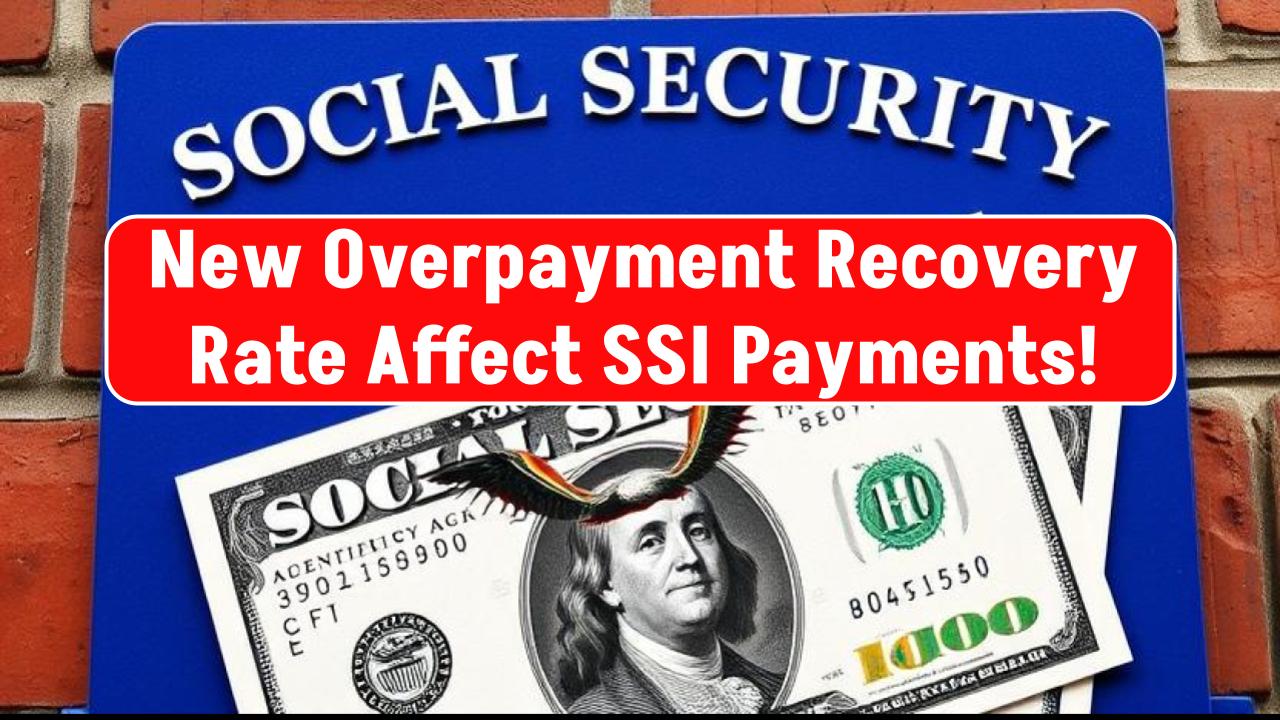
The Social Security Administration (SSA) has announced a significant policy change that will take effect on March 27, 2025. This change involves reinstating the 100% withholding of a beneficiary’s monthly Social Security payment to recover overpayments. The agency had previously reduced the withholding rate to 10% in March 2024, but it is now returning to its original policy.
However, this change does not affect Supplemental Security Income (SSI) payments. For SSI overpayments, the withholding rate remains at 10%.
SSI Payments
| Topic | Details |
|---|---|
| Effective Date | March 27, 2025 |
| Social Security Overpayment Recovery | Full 100% withholding of monthly benefits for overpayments |
| SSI Overpayment Recovery | Remains at 10% |
| Reason for Overpayments | Income changes, administrative errors, marital status updates, etc. |
| Appeal Rights | Beneficiaries can request a waiver or reduced repayment plan |
| Official SSA Source | SSA Announcement |
The Social Security Administration (SSA) is bringing back its 100% withholding policy for overpayments starting March 27, 2025. However, SSI recipients will continue with the 10% repayment rate. Overpayments happen due to various factors, and beneficiaries have options such as appealing, requesting a waiver, or negotiating lower repayment plans. Staying informed and proactive can help manage potential overpayments effectively.
What Does This Mean for Social Security Beneficiaries?
If you receive Social Security benefits (such as retirement or disability benefits), any overpayment owed to SSA will now be fully deducted from your monthly check starting March 27, 2025. Previously, SSA had reduced this to a 10% withholding rate, but they are now reverting to full repayment deductions.
For example, if you receive a monthly Social Security check of $1,500 and owe an overpayment of $5,000, the entire $1,500 will be withheld each month until the debt is cleared.
What About SSI Payments Recipients?
Good news for SSI recipients! If you receive Supplemental Security Income (SSI), the 10% withholding policy remains unchanged. This means if you owe an overpayment, SSA will continue to deduct only 10% of your SSI benefits each month until the balance is cleared.
For example, if you receive an SSI payment of $800 per month, and you owe an overpayment, SSA will deduct $80 per month (10%) instead of taking the full amount.
Why Do Overpayments Happen?
Overpayments can occur due to several reasons, including:
- Changes in income that are not reported on time.
- Administrative errors by SSA.
- Living arrangement changes, affecting eligibility.
- Failure to report marital status updates.
- Other miscalculations in benefit distribution.
How to Prevent Overpayments?
To avoid overpayments and unexpected deductions:
- Report income changes as soon as they occur.
- Keep SSA updated on marital status and living arrangements.
- Review SSA notices carefully to catch errors early.
- Use SSA’s online portal to track payments and overpayment status.
What to Do If You Get an Overpayment Notice?
If you receive a Social Security overpayment notice, here’s what you can do:
- Review the notice carefully – Make sure the overpayment amount is correct.
- Request a reconsideration – If you believe the overpayment is incorrect, you can appeal.
- Ask for a waiver – If the overpayment was not your fault and you cannot afford to pay it back, SSA may waive the repayment.
- Negotiate a lower repayment rate – If full withholding creates financial hardship, you can request a reduced repayment amount.
To file an appeal or request a waiver, visit the Social Security Administration’s official website.
SSI Payments (FAQs)
Who is affected by the 100% withholding policy?
Only Social Security beneficiaries (retirement, disability, survivors) are affected. SSI recipients will continue under the 10% rule.
How do I appeal an overpayment decision?
You can appeal by submitting Form SSA-561 Request for Reconsideration through the SSA website or visiting your local SSA office.
Can I request a lower repayment amount?
Yes. If full repayment creates financial hardship, you can request a lower deduction rate.
How long do I have to respond to an overpayment notice?
You typically have 60 days to appeal an overpayment decision.
Where can I check my overpayment status?
You can log in to your My Social Security account at www.ssa.gov to check your overpayment status.








































